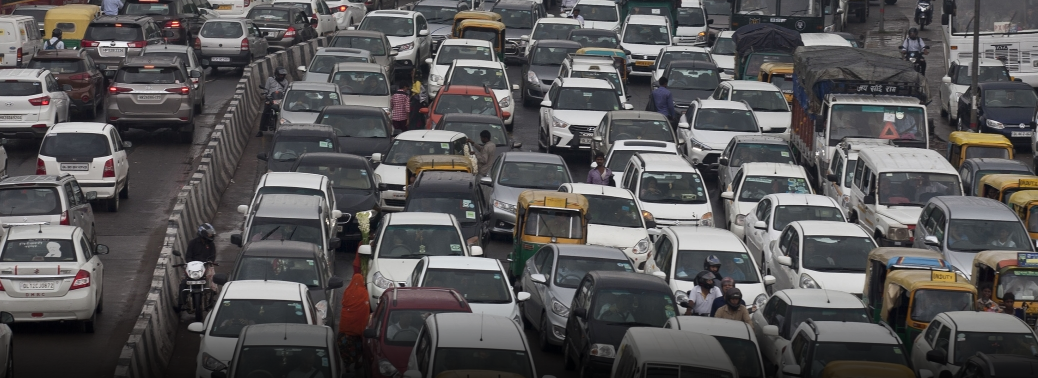Sale BAN on BS – IV Vehicles from 2020
19, Oct 2018

Prelims level : Pollution
Mains level : GS- Paper- III Conservation, Environmental pollution and degradation, environmental impact assessment
- The Supreme Court has ordered a ban on sales of vehicles compliant with BS-IV emission norms in India starting 1st April 2020. Thus, India will be moving directly on from BS-IV emission norms to BS-VI in 2020, skipping BS-V norms.
About:
- The decision, taken by a three-judge bench implies that only BS-VI compliant vehicles will be sold in the country starting 1st April 2020.
- The need of the hour was to move to a cleaner fuel.
- It is an established principle of law that the right to life, as envisaged under Article 21 of the Constitution of India, includes the right to a decent environment. It includes within its ambit the right of a citizen to live in a clean environment.
- Bharat Stage-IV emission norms came in to force in India on 1st April 2017, which was also the apex court’s deadline for a ban on BS-III compliant vehicles. Bharat stage emission standards are standards instituted by the government to regulate the output of air pollutants from motor vehicles.
Significance:
- The difference between BS-IV and BS-VI is in the amount of sulphur in the fuel with the latter estimated to bring down sulphur content by almost 80 per cent.
- Once BS-VI emission norms are enforced, there will be a 68% improvement in PM 2.5. It is a vast improvement and the faster it is brought, the better it is.
- The PM limit from its new BS-VI diesel vehicles is lower by 82% compared to the BS-IV diesel vehicles. Upgrading to stricter fuel standards helps tackle air pollution.
- Another relevant outcome of the new BS-VI compatible engines is that there has been a drastic decline in NOx emissions level by 68%, narrowing the gap between petrol and diesel emissions.
- The Supreme Court order on the ban on the sale of BS-VI compliant vehicles has come well in advance and hopefully, the transition to higher emission standards will be smoother than the last time. During the last transition from BS-III to BS-IV in 2017, several automobile manufacturers faced heavy losses owing to huge stockpiles of outdated vehicles that remained after BS-IV emission norms were put into force.
- Vehicle makers will be able to plan well ahead to meet the new norm. As the verdict has come at a fairly advanced time.
- It gives enough time to automakers to plan their inventories unlike the BS-IV situation where it came almost closer to the date.
- As other developing countries such as China have already upgraded to the equivalent of Euro VI emission norms a while ago. So, India is lagging behind even after implementation of BS VI norms.
- India is a signatory to the United Nations Framework Convention on Climate Change (UNFCCC), and has pledged to cut its carbon emissions by 33-35% by 2030. The court’s verdict is being hailed as a step forward in that direction.
Background:
- In 2016, the Centre had announced that the country would skip BS-V norms altogether and adopt BS-VI norms by 2020.
- The government has set up BS emission standard to control the degrading air quality. BS-VI, which is based on the European regulations (Euro norms) and originally to be introduced in 2024, has been now rescheduled to 2020, instead. Thus, the country will move directly from BS-IV to BS-VI.
- Bharat Stage emissions standards are emissions standards instituted by the Government of the Republic of India that regulate the output of certain major air pollutants such as nitrogen oxides, carbon monoxide, hydrocarbons, particulate matter, sulphur oxides by vehicles and other equipment using internal combustion engines.
- They are comparable to the European emissions standards. India started adopting European emission and fuel regulations for four-wheeled light-duty and for heavy-dc from the year 2000.
- For two and three wheeled vehicles, the Indian emission regulations are applied. As per the current requirement, all transport vehicles must carry a fitness certificate which is to be renewed each year after the first two years of new vehicle registration. The National Fuel Policy announced on October 6, 2003, a phased program for implementing the EU emission standards in India by 2010.






